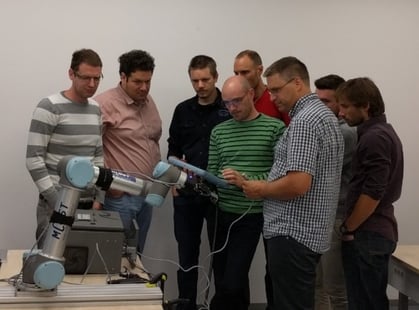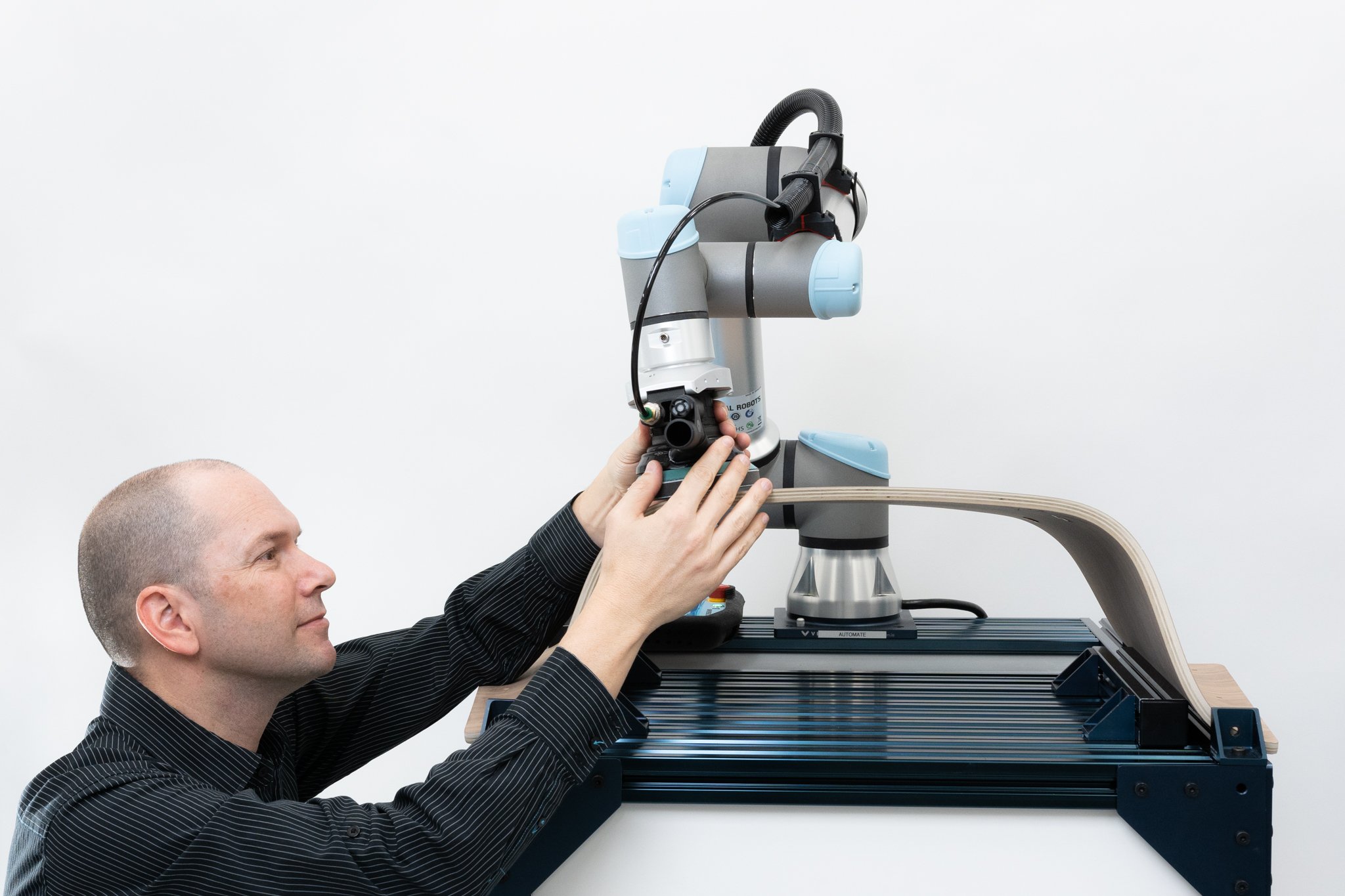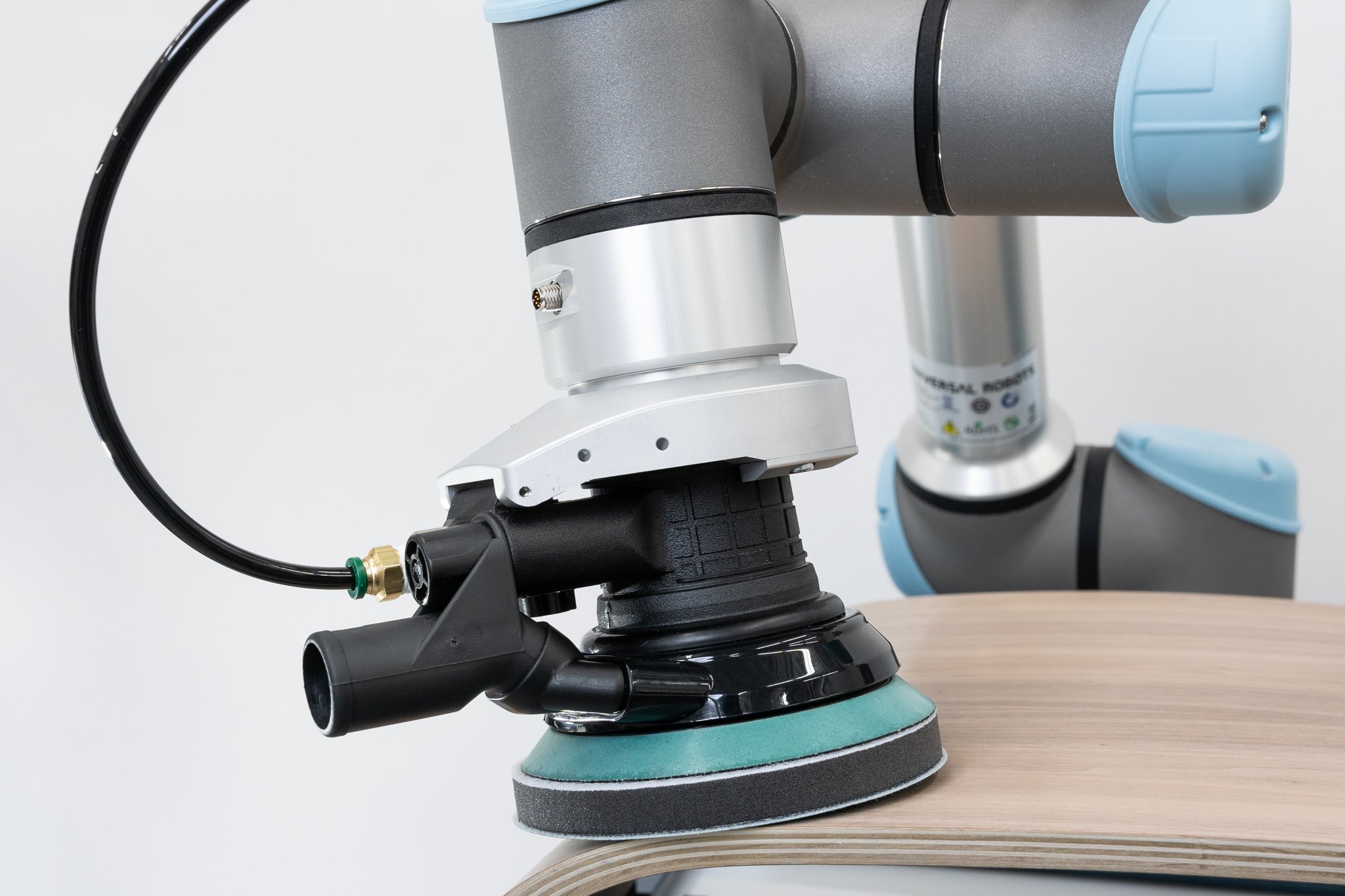Is In-House Robotics Expertise Enough?

Posted on Feb 01, 2017 7:00 AM. 5 min read time
Training in-house robotics expertise looks like a promising way to fill the skills gap. But, is it enough? As the role of integrators is changing in the world of automation, we discuss whether you can really train the workforce in robotics skills. Is it enough to match the expertise of external integrators?
If your company is thinking of moving to in-house robotics expertise, you might be wondering: Is it enough? Outsourced integrators have a lot of skills and expertise. Can your workforce really be trained to match that level of expertise? How many skills do they need?
If you have worked with outsourced contractors, you will be used to external companies providing your robotics expertise. You might be wary about moving to in-house expertise because you fear losing that knowledge when you cut ties with the integrator. Even if you have never used a robotics integrator before, you might be anxious about taking all the responsibility for the robotics system yourself.
In this article, we look at where outsourced integrators fit in the path to in-house robotics expertise. We discuss the type of skills that they provide and explain how these can be matched by in-house expertise.
The Changing Role of Integrators
 A 2014 reader survey by AutomationWorld magazine found that the role of integrators is changing. Over half of the respondents had no plans to use external integrators over the next five years. In contrast, 83% of respondents had either increased the number of in-house automation employees or maintained the same number over the previous three years. Clearly, in-house expertise is on the rise.
A 2014 reader survey by AutomationWorld magazine found that the role of integrators is changing. Over half of the respondents had no plans to use external integrators over the next five years. In contrast, 83% of respondents had either increased the number of in-house automation employees or maintained the same number over the previous three years. Clearly, in-house expertise is on the rise.
Does this mean that external integrators are dying out? Not at all. Around 47% of respondents had also increased their use of integrators over the previous three years. Companies are using both more in-house and more outsourced experts. This also suggests that their in-house expertise wasn't able to keep up with the increase in automation projects.
The survey was of control systems integrators — not all of whom will be robotics engineers — but the overall trend is probably similar for robotics integrators, as robot sales are also on the rise.
All of this suggests that companies, like yours, want to use more automation and develop their in-house expertise. However, the workforce are not experts in automation so skills gaps are opening up. Outsourced integrators may seem like the only option to fill those gaps, but there is another option: increase training.
Collaborative robots require much less training than traditional automation. This makes it easier to move away from using integrators. However, as The Robot Report said recently, we're not there yet.
What Skills Do Integrators Provide?
 If integrators are filling a skills gap, what skills do they actually provide? It is helpful to split the skills into two categories: technical and non-technical skills. When you are training in-house staff, they will not need to be trained in all of these skills.
If integrators are filling a skills gap, what skills do they actually provide? It is helpful to split the skills into two categories: technical and non-technical skills. When you are training in-house staff, they will not need to be trained in all of these skills.
First, let's look at the technical skills. People often turn to external integrators for their up-to-date knowledge of the latest robotics practices and technologies. The skills which accompany this knowledge include: robot selection, robot programming, end effector selection, fixturing, safety sensing, etc. Most of these are fairly straightforward to train to in-house employees. Of course, this training will require time, investment and a good in-house training plan.
Integrators also provide a lot of non-technical skills, including: project management, purchasing, service handling, warranty tracking, etc. Some of these skills will be, essentially, "doubled up" when you are using an external integrator — both your business and the contractor will perform them. As a result, you may be paying (indirectly) for a set extra skills which wouldn't be necessary from an in-house robotics expert. However, these non-technical skills are the most important in an external integrator, as without them the working relationship is likely to be difficult. Consider that 19 out of the 25 criteria in the RIA Certified Integrator Program are not directly related to the technical skills of robotic integration.
Therefore, it is likely that you will focus on training the technical aspects of robotics integration during a move to in-house robotics expertise. The non-technical skills will be, at least partially, covered by other parts of your business. With collaborative robots, you will almost certainly be able to train the necessary technical skills to your workforce.
How to Become an Ultra-Specialized Integrator for Your Business
Ultimately, you and your colleagues are the most knowledgeable people about the robotics needs of your business. Because you all work together, you all "speak the same language" so can develop new robotic applications easier and more frequently than if you were using an external integrator. With the right training, your robotics-trained employees can effectively become a collaborative team of integrators who are ultra-specialized in your business.
Despite what some may think, integration companies are not often generalists. Most are specialized in one or two areas of industry. For example, some integrators are specialized in end-of-line packaging solutions, automation for food processing systems, materials handling and fabrication, farming automation, or robot vision. As Motoman warns: "just because someone has completed a highly complex automation for one application – for example, high-speed handling using vision – doesn’t mean they’ll successfully deliver on an inspection cell."
This specialism is only an advantage if you want to use an integrator for a project within their specialist area. However, if you decide to move your robot to another task — which is very easy with a collaborative robot — you may find that their specialized knowledge becomes more of a hindrance than an advantage. This is perhaps why 25% of the respondents in the Automation World survey complained that "integrator expertise was no better than their in-house resources."
When moving to in-house expertise, you can choose which specific robotic skills to train in. This is a huge advantage as it is highly flexible. If your team decides that an application needs robot vision, for example, you can simply add vision to your training schedule. In the short term, integrators are a good way to fill the skills gap for complex . In the long term, however, a move to in-house robotics expertise is absolutely possible and well worth the effort.
Get started with our brand new program on building your in-house robotic expertise. Subscribe today!
What are your thoughts on in-house robotics expertise? Are there any skills you think that integrators will always be better at? What considerations are most important for robotics training in your business? Tell us in the comments below or join the discussion on LinkedIn, Twitter, Facebook or the DoF professional robotics community.







Leave a comment